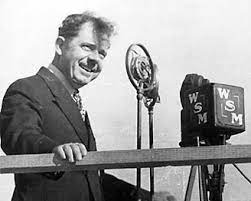I’ve done quite a lot of research into the Roosevelts – Theodore, Franklin, Eleanor, and Alice, Teddy’s oldest daughter.
In the course of which I found something they all had in common – tragedy. Each of these four experienced tragedies early in life that I think helped pave the way for their eventual greatness.

Theodore Roosevelt was planning to make science his life’s work in the late 1870’s. His father told him that if he was going to do that, he had to take it seriously and do the very best work he could. Teddy switched two of his classes to science.
Within a few years he had been elected to the New York State Assembly.
Teddy was definitely an atypical politician. He was the “dude” of Albany politics, bucking the wishes of his party for the sake of legislation he believed in. He was, as always, the kind of guy you either loved or hated. He took on the corrupt “machine” politicians of his party as if he held some kind of grudge. He sought newspaper headlines for himself as if he was trying to make sure everyone knew his name.
So what changed?
In the mid-1880’s he was alone in the Dakota Territory, slaughtering his way through game and making the connections that prompted his investment in cattle ranching. It was here that he became the cowboy of later legend. He said that had it not been for his experiences in the Dakotas, he never would have become President.
What sent him into the Badlands?
***
Franklin Delano Roosevelt was the Democratic nominee for Vice President in 1920. Even though the ticket didn’t win, he was widely considered to be the front-runner for the Presidential nomination in 1924.
FDR went to the Democratic Convention in 1924, but it wasn’t to accept the nomination.
Historians generally agree that if Franklin had been the nominee in 1924 he would have lost and likely never been heard from again.
Where had he been?
***
Eleanor Roosevelt had always faded into the background. The niece of Teddy Roosevelt, her shy and retiring ways kept her out of the bright light her uncle and cousins bathed in.
She kept to herself and avoided involvement in the wider world, preferring to support her ambitious husband from the sidelines, while trying to keep the peace with her domineering mother-in-law.
Long before her husband became governor and then President, Eleanor had formed a group of politically-engaged women, was giving speeches statewide, and achieved national prominence.
Wonder what changed…
***
Alice Roosevelt was a handful. She was seventeen when an assassin’s bullet elevated her father to the Presidency. She was outspoken and wild, garnering headlines the same way her famous father did.
He once said, “I can either run the country or I can attend to Alice, but I cannot possibly do both.”
She jumped into swimming pools with her clothes barely on, surrounded by Congressmen (one of whom she later married). She cut her wedding cake with a sword. She campaigned against her own husband and carried on affairs. She had a child with Senator William Borah while still married to Nicholas Longworth (the child was known in the family as ‘Aurora Borah Alice’).
When the Roosevelts had to leave the White House, she buried a voodoo doll of the next First Lady, Nellie Taft, in the front yard. Woodrow Wilson banned her from the White House in response to a ribald joke at his expense.
She stated she would oppose her own father’s candidacy if he had decided to run in 1916. She opposed her cousin Franklin’s presidential candidacy in 1932, but attacked his opponent, Thomas Dewey, in subsequent elections.
Always contrary, she developed friendships with both the Kennedys and the Nixons. She had a pillow embroidered with her famous quote, “if you can’t say something good about someone, sit right here by me.” She told Lyndon Johnson she wore wide-brimmed hats so he couldn’t kiss her.
Jimmy Carter said he couldn’t decide which was worse in Washington—being “skewered by her wit or to be ignored by her.” Richard Nixon said. “No one, no matter how famous, could be outshined by her.”
What made Alice Alice?
***
Theodore Roosevelt wrote, "Only if you've been to the lowest valley can you know how great it is to be on the highest mountain top."
It was precisely the valleys these four Roosevelts inhabited in their early lives that propelled them to the highest peaks. The things they suffered early on are a big part of the reason their names echo through history.
In this series, I delve into the Roosevelt tragedies, and how they became fuel to the fire of this famous family’s greatest members.
These bonus episodes are available by subscription only. Click the link below to sign up, and unlock these episodes and all future bonus content.
Your support is greatly appreciated.







